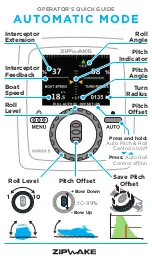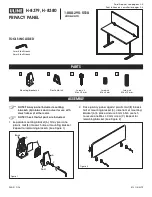
Version 1.0 October 2010
Page 2 of 2
AS-FCB-HDSDI-QS-GUIDE
4. Carefully slide the end of the cable into the connector. The metal contacts of the
cable face away from the board, and the cable should be inserted between the brown
“ledge” of the retaining clip and the light coloured body (i.e. not between the retaining
clip and the board).
5. Lock the cable in place by simultaneously pressing down both brown tabs at the ends
of the connector.
6. See photos below:
7. Similarly the other end plugs into the connector on the side of the camera, and
furthest from the lens. With this connector the metal contacts face the board, and the
cable should be inserted close to the board.
Power Cable
1. This plugs into J2 on the Adapter Board.
2. The other end of the cable is terminated in tinned wires which can be connected as
appropriate for the application.
3. Pin 1 (marked on the cable) should be connected to 9V DC, and pins 2 & 3 to 0V.
This cable powers both the camera and the Adapter Board. The Adapter Board takes
an additional 20mA (approx), and works over the same supply tolerance as the
camera (±3V).
MCX to BNC Cable
1. This plugs into J1 on the Adapter Board until it clicks.
Video Pass Through and Control Cable
1. This plugs into J3 on the Adapter Board. Please see the ACTIVE-FCB-HDSDI
datasheet for pin connection details.
Fitting the Bracket
1. The Adapter Board is simply screwed to the base of the camera using four M2
screws (supplied).
LED Activity
1. The Adapter Board is fitted with a LED to show the camera status.
2. Green indicates that the camera is powered and providing valid video data.
3. Red indicates that the Adapter Board is powered but no valid video data is being
received. Ensure that the 10 way video cable and the 24 way flat cable are correctly
connected to the Adapter Board and the camera.
SUPPORT
USA
Europe
Email: [email protected] [email protected]
Web: www.activesilicon.com
www.activesilicon.co.uk
Tel:
+1 410-696-7642
+44 (0) 1753 650600
Active Silicon
www.activesilicon.com




















